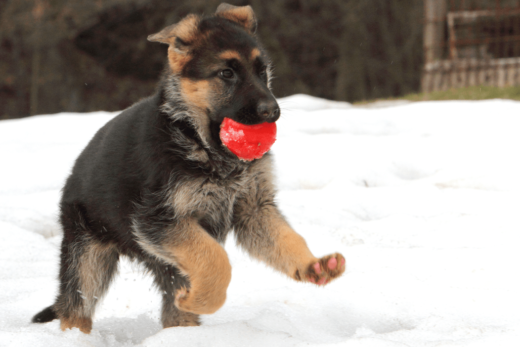
It can be very frightening when a dog shows aggressive behavior and even more so if they have not exhibited any aggression in the past. Your dog might have been an easy going pup who got along with other animals and people and then suddenly a situation arises where they begin to exhibit aggressive behavior—barking, growling, even trying to bite. These aggressive behaviors are not normal, and they can and should be managed with careful training and a visit to the veterinarian.
Typical aggressive behaviors in dogs are threatening or harmful postures and actions that include becoming still and rigid, growling, giving a deep and threatening bark, showing teeth, or nipping or biting, and they can stem from a variety of causes. If you can understand what is contributing to your dog’s new behavior, you can work with your fur friend to limit the causes and get back to enjoying life together.
What creates aggression in dogs? How do we manage it?
Reactivity:
One of the main causes of sudden aggression in dogs is reactivity. Reactive dogs respond to certain stimuli (other dogs on leashes, loud noises, men with beards, running or shouting children, for example) in a negative and fear-based way that can lead to an aggressive behavior. This fear response can result in growling or even biting from a reactive dog.
Work to identify situations that trigger a reactive dog and pay close attention to the dog’s body language. Defusing a situation before it reaches the point where your dog responds aggressively is key. Be direct and clear with other people to tell them your dog doesn’t like to be patted on the head or approached by dogs when he’s on a leash. Reward-based positive training can focus on limiting the reactive response to the trigger stimulus, but you always want to establish a safe environment for your dog and others before beginning to try to diminish the aggressive reaction.
Health issues:
Just as humans can be snappy and angry when we don’t feel well, dogs sometimes exhibit aggressive behavior because they are experiencing severe pain. An untreated ear infection, joint discomfort, tooth decay, or cancer are a few of the medical situations that can lead a dog to lash out. Medical problems such as hypothyroidism or a Lyme disease infection can also lead to a dog becoming suddenly aggressive.
Always take extra caution when handling an injured dog, as even your best friend might respond aggressively when they are in extreme pain. Regular veterinary checkups and consulting with your vet if your dog seems ‘off’ or is showing sudden aggression can help ensure there is not an underlying health problem causing the behavioral issue.





